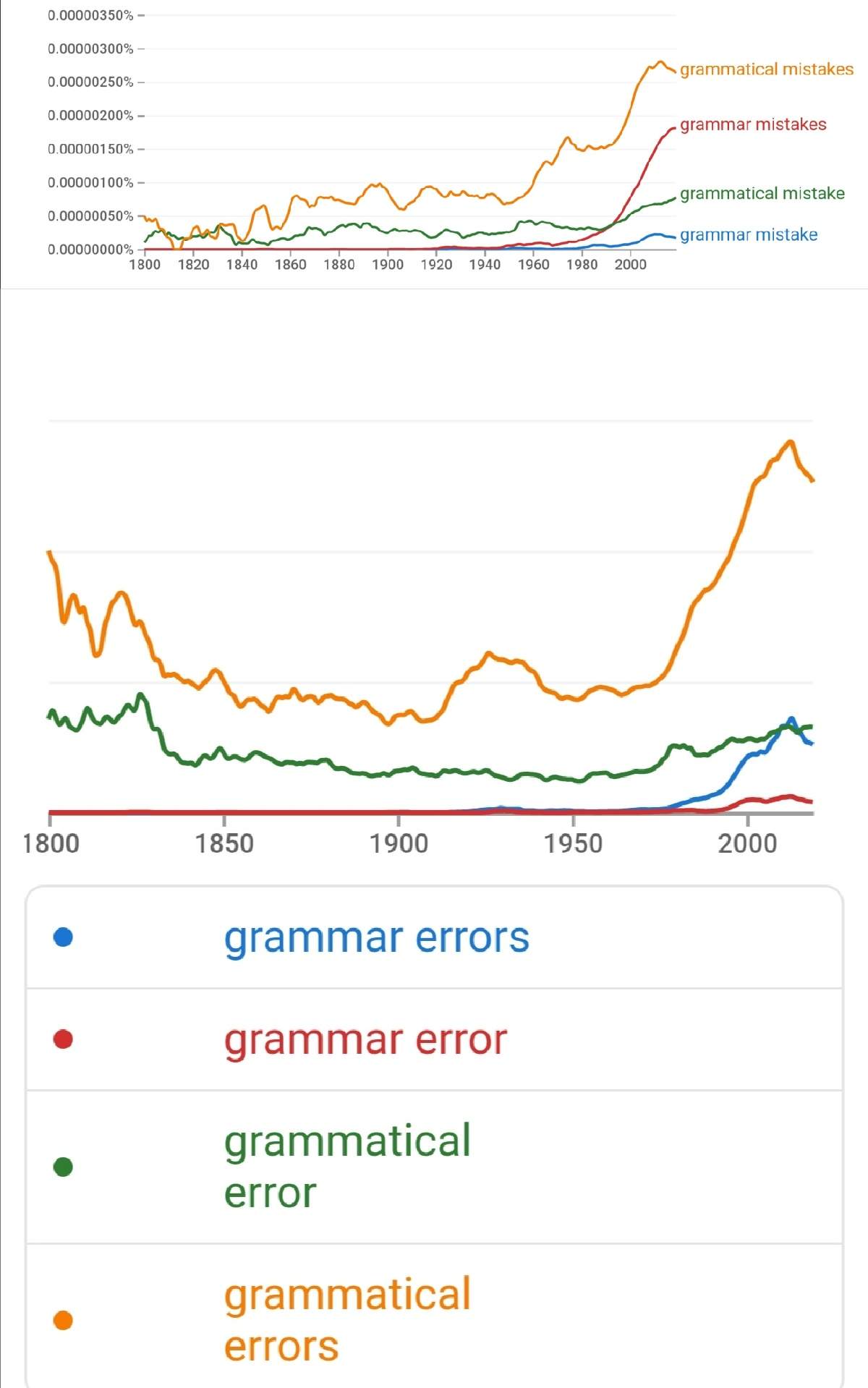While attributive nouns are a great and easy alternative to their adjective forms, they must be used judiciously
During our conversation on Skype, a friend from Nevada interrupted me when I said, “They’ll conduct a second round of telephonic interview.”
He then apologized to me, saying, here in North America, we don’t say “telephonic interview”; “telephone interview” is more common here.
That made me super curious about the phrase and I started Googling just to see how people around the world (esp non-native English speakers) would use words in situations like this.
In fact, that’s the motivation behind this guide.
Grammar Mistakes or Grammatical Mistakes?
This is one of the many queries non-native English speakers are curious about.
Maybe they have been in a similar situation? Who knows!
When you turn to Chat GPT for answers, it says both “grammar mistakes” and “grammatical mistakes” are grammatically correct, but they are used in slightly different contexts.
So, what are the contexts?

Everyday Language vs. Formal Writing
“Grammar mistakes” refers to errors or inaccuracies in the use of grammar in written or spoken language. For example, using incorrect verb tense, subject-verb agreement, or punctuation.
“Grammatical mistakes” is a more formal term for the same concept. It also refers to errors in grammar usage but is often used in more technical or academic contexts.
In everyday language, “grammar mistakes” is more commonly used, while “grammatical mistakes” is frequently seen in formal writing or discussions about language and linguistics. Both phrases are correct, and the choice between them depends on the context and style of writing.
So, according to the Chat GPT explanation, it’s essentially a matter of specific use cases and scenarios. That makes perfect sense.
However, there’s another convention attached to this distinction.
Attributive Noun vs. Adjective
In the phrase “telephone interview”, both telephone and interview are nouns, but telephone performs the action of an adjective by attributing a nature to the interview.
In other words, it defines how the interview is conducted, ie. over the telephone.
When we say, “telephonic interview”, we essentially use the adjective instead of the attributive noun. So, it’s just an alternative to “telephone interview”.
In many countries such as India, however, the use of “telephonic interview” is very common among speakers (even in corporate offices).
Why is that? You may wonder!
Let’s just say Indian English is more formal or is it one of those common English mistakes Indians make?
Similar Guide: 6 Common English Vocabulary Errors and How to Avoid Them
This brings me to the next question – how do I use an attributive noun correctly?
How to Use Attributive Nouns Correctly
Attributive nouns are very common in everyday speech. Some examples are:
Music Class, Sea Food, Night Sky, Car Park, Country Road, Flight Tickets, Math Teacher.
While attributive nouns are a great and easy alternative to their adjective forms, they must be used judiciously.
In one of his blog posts, Ben Mudrak, an AJE author, cautions users to tread carefully in order to avoid causing confusion among readers.
Brevity is often paired with ambiguity, he quips.
For example, when you say, “voter awareness”, it could mean both of the following:
Awareness that voters are present
Awareness of a particular topic among voters
Likewise, when you add an adjective to an attributive noun, it could add to the confusion.
For example, a “small truck driver” could both mean a diminutive driver of a normal truck and a driver of a small truck)
Indeed, a good grasp of attributive nouns can help ward off such potential mistakes.
I hope this guide is useful to you.

Leave a Reply